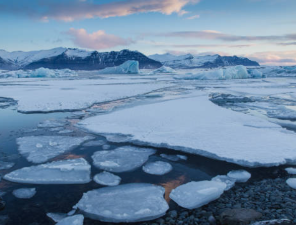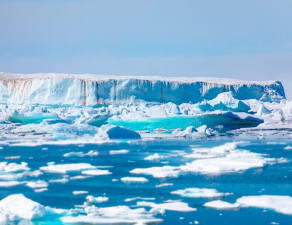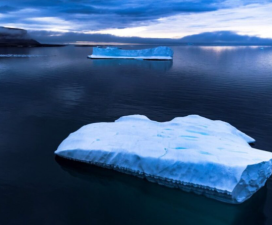The Arctic could see its first ice-free summer day by 2027, exacerbating global warming and extreme weather. The Arctic could see its first summer as early as 2027, with nearly all of its sea ice melted away — a troubling milestone for the planet. For the first time, an international team of researchers, led by the University of Colorado and the University of Gothenburg in Sweden, used computer models to predict when the northernmost ocean would see its first ice-free day. An ice-free Arctic could have major impacts on ecosystems and Earth’s climate by altering weather patterns.

The team says the first ice-free day in the Arctic would not be a major change. That would indicate that we have fundamentally altered one of the defining features of the Arctic Ocean’s natural environment, its year-round cover of sea ice and snow, through greenhouse gas emissions.
As rising greenhouse gas emissions drive a warming climate, the Arctic’s sea ice is disappearing at an unprecedented rate, more than 12% per decade.

In September, the National Snow and Ice Data Center reported that this year’s Arctic sea ice minimum — the day with the least amount of frozen seawater in the Arctic — was one of the lowest on record since records began in 1978.
The minimum rainfall this year was 1.65 million square miles, or 4.28 million square kilometers, higher than the historical low observed in September 2012. But it is still significantly lower than the average coverage of 6.85 million square kilometers between 1979 and 1992.
Scientists say that the Arctic is ice-free when the ice in the Arctic Ocean is less than 1 million square kilometers.
The Arctic ecosystem will also suffer a catastrophe. Animals such as polar bears and Arctic foxes rely on glaciers for survival. The reduction of glaciers means that their habitats are shrinking and their food sources are becoming less and less. These lovely animals are facing great challenges to survival and may even go extinct.

Furthermore, the melting of glaciers will also have a chain reaction on the global climate. The originally stable climate pattern is broken, and extreme weather events such as heavy rains, droughts, hurricanes, etc. will become more frequent. Problems such as crop failures and water shortages will also follow, affecting the lives of billions of people.
The crisis of Arctic glaciers is a wake-up call from the earth to us. We can no longer turn a blind eye to environmental problems. Only by taking action can we save our common home.
